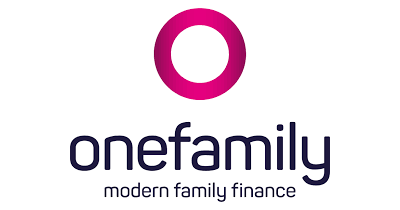How much can I borrow via equity release?
How much can I borrow via equity release?
The amount of equity you are able to release from your property will depend on your personal circumstances. Assuming you are eligible for equity release (see below), you may be able to borrow between 20% and 60% of the value of your home. Everyone is different – your (and your partner’s) age and the market value of your property will dictate the maximum amount you can release.
To qualify for equity release, you must be at least 55 years of age and own a conventional home in the UK with a value of £70,000 or more.
Q: What factors determine the amount of equity I can release?
Providers of equity release schemes generally look at two key factors when working out your personal figures:
- The value of your property:
Your chosen equity release lender will arrange for a professional valuation to be carried out on your home to establish its current market value. This will take into consideration the type of property construction, its overall state of repair and whether it is a listed building. Also taken into account will be any debt secured against the property such as an outstanding mortgage (which will need to be redeemed first).
- Your age and health:
Your equity release provider will make an estimated calculation on how long you are likely to live, based on your age, general health and lifestyle choices. Past medical conditions may also be factored in. Should you wish to submit a joint application, these calculations will be based on the age and health of the youngest applicant.
If you would like to find out how much tax-free cash you could release from your property, you can use our Equity Release Calculator here.
Q: What is the minimum amount that I can release?
Most equity release borrowers release somewhere between £10,000 and £100,000. A minimum amount of £10,000 is often stipulated by lenders so that your scheme is financially viable for them.
Q: What is maximum amount of equity that I can release from my home?
The maximum amount you can borrow is typically capped at around 60% of the property value. The exact amount will depend on your age and health, the value of your home and any other factors mentioned above. In other words, if a 55-year-old and 85-year-old borrower had the same property value and were interested in taking out a later life mortgage, the older investor would be able to release more equity.
To get a better indication, use our handy Equity Release Calculator or, better still, get in touch with John Whyte direct and ask for a personalised illustration.
Proudly Working With
Q: Can I release additional funds if I already have an equity release plan?
If you are an existing equity release borrower, you may be able to release more money. Speak to your equity release provider to find out if you are able to borrow more. They could also offer you a ‘rebroking’ service to check if there are better plans with better rates available for you.
Be warned that you may need to wait a while before you are able to release more money through your scheme. You may also incur more costs to access further funds. Make sure you have all the information from your provider before you make a decision to borrow more.
Many equity release customers choose to take out a drawdown lifetime mortgage, consisting of an initial lump sum followed by smaller amounts over time. This may be an option for you.
At John Whyte Equity Release, we can help you review your existing plans if you are unhappy with your current terms, to see if we can get you a better deal. By switching your equity release plan, you may be able to release more tax-free cash immediately, take advantage of flexible drawdown facilities, or remortgage to a scheme with lower interest rates, potentially saving you thousands of pounds.
Q: What are the alternatives to equity release?
Equity release can be a great financial vehicle to help you access the cash tied up in your home, but it’s a big decision that needs to be carefully considered. For sure, equity release is not the right solution for everyone.
Consider all the pros and cons of equity release before you make your decision, and involve your family too, since they will be affected by the reduced amount of inheritance they will receive.
There are a number of alternatives you should also consider. These including downsizing your home or relocating to a less expensive area, generating income from your property by letting out a room, or drawing on other savings or investments.
Consult with a professional financial adviser to consider all the options available to you in order to ascertain whether equity release is the best option for your individual circumstances.
If you would like some expert advice to discuss equity release and your personal financial situation, please don’t hesitate to get in touch with John Whyte Equity Release. I am a highly experienced independent equity release specialist, offering impartial equity release advice for
Discover how much you can release with our calculator
Equity Release Sussex is a trading style of The Later Life Lending Network Limited, an Appointed Representative of The Right Mortgage Ltd, which is authorised and regulated by the Financial Conduct Authority (Ref – 649443). Registered in England and Wales no. 09832887. Registered address: 70 St. Johns Close, Knowle, Solihull, England, B93 0NH.
For Independent Equity Release advice we do not charge any upfront fees however,
a fee of up to 1% of the total cash facility arranged is payable (subject to a typical minimum charge of £1,295) on completion for our service in relation to lifetime mortgage contracts plus commission from the lender.
The exact amount will depend on the complexity and work involved in your case and will be confirmed by way of a formal fee agreement.
For Independent Mortgage Advice we charge a fee of up to 1% of your mortgage amount payable (subject to a typical minimum charge of £295 payable on application & £300 on completion (£595 in total) plus commission from lender. The exact amount will depend on the complexity and work involved on your case and will be confirmed by way of a formal fee agreement.
The information contained in this website is subject to UK regulatory regime and is therefore intended for consumers based in the UK













